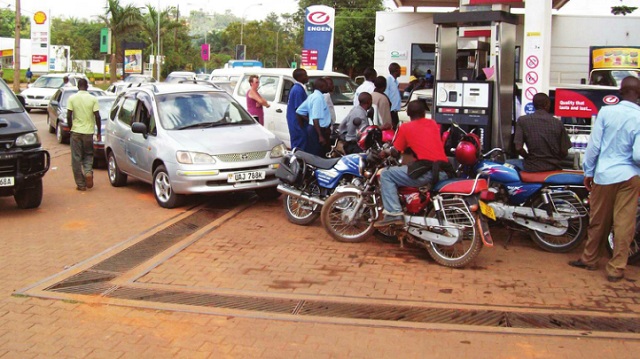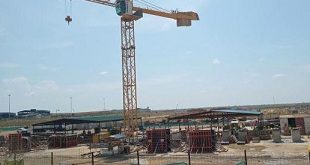
Bad fuel concern: Dealers, UNBS clash over adulterated fuel standards
If you are a motorist, chances are high that you’ve ever bought adulterated fuel unwittingly. Fuel adulteration involves the mixing of diesel or petrol with kerosene as dealers seek to take advantage of the lower price of kerosene to increase volumes to sell to motorists. This not only cheats the consumer of cash but also leads to severe damage to the vehicle engine hence necessitating constant repairs.
As a direct response to the public outcry, the government moved to implement a fuel marking and quality control programme in 2009 to monitor the quality of petroleum products in the entire supply chain across the country.
In conjunction with Global Fluids International, a Canadian firm, the government introduced fuel markers on fuel tankers at the customs entry points. Consequently, data from the Uganda National Bureau of Standards shows that fuel adulteration has declined from 30% in 2009 to 0.6% in 2016.
Speaking at a stakeholders meeting in Kampala on July 01 aimed at updating the country on the progress and performance of the Fuel Marking and Quality Monitoring Programme (FMP), Peter Kitimbo, the UNBS principle analyst, said their increased coverage and supervision along the supply chain contributed to reduction in adulterated fuel on the market.
FMP ensures that all imported petroleum products are inspected, verified, and marked at the point of entry at Malaba and Busia and followed-up along the supply chain to ensure that it is not tampered with at any stage.
“We have so far increased our coverage of fuel retail outlets from 30%, nearly seven years ago to 74% presently. Our target this financial year is to achieve 80% of all fuel stations countrywide,” Kitimbo said. There are currently 2, 183 fuel stations countrywide and the number keeps growing.
A few months ago, UNBS in collaboration with the energy ministry, named more than 140 pump fuel stations found guilty of selling adulterated fuel.
The ‘name and shame’ list covered the periods between October – December 2015 and January – March 2016 as fuel dealers took advantage of the high demand for the products during the election period.
Some of the fuel stations implicated in the scam included; Sena Savers in Mubende, Hope Well in Mayuge, Ronnex in Gayaza Wakiso, Kasambira in Kamuli, Kiwenda in Wakiso, Kobil in Apac, Mubende and Mityana, Super Dembe in Wakiso, and Moil petrol station at Banda.
Other were; Africa oil in Kawempe, Hariro in Mbale, Kikagati Kagera in Isingiro, Makawa Idudi in Iganga, Mawumo in Luuka and Mukono, and Mogas in Lukaya, and Petrocity in Namawojolo and Mukono, Star Petroleum in Luwero, and Stabex Kawuku in Wakiso District among others
The tests looked at were adulteration of petrol and diesel, parts per million and relative standard deviation. Even when the government reinstated excise duty on kerosene to deter dealers from mixing it with motor vehicle fuels to increase volumes, the practice has persisted because kerosene is still cheaper than both diesel and petrol.
However, a section of fuel dealers at the stakeholders meeting questioned standards that UNBS uses with the claim that there are variations in results for the same fuel tested.
“At one point, you are told that your tank has passed the test, and at another stage, you are told that your tank has failed to meet the standards,” John Bagambe, a fuel dealer, said. “This was not a one-off event, it has happened to me several times.”
In a rejoinder, Spero Byokunda, the head of petroleum quality assurance at the energy ministry, said during analysis and testing, there could be some sources of error that could be as a result of the individual handling the testing, calibration of the testing equipment and at sometimes caused by environmental conditions.
“However, were are striving to ensure that the results are accurate because our fuel analysis in the lab also helps us to not only enforce standards but also gives us evidence in case of litigation,” Byokunda said.
The dealers had proposed that fuel marking be carried out at the point of loading through the Single Customs Territory, a suggestion that the energy ministry rejected.
“The purpose of introducing fuel marking is quality,” said Frank Tukwasibwe, the commissioner at the Petroleum Supply Department at the energy ministry. “If we mark the fuels at the point of loading and along the way, it is adulterated, shall we have achieved the objective? No,” he said. He said extending the fuel marking at the loading points would also increase the cost of fuel products on the market.
Nevertheless, he cautioned dealers against selling adulterated fuel saying the culprit stations risk being closed.
Currently, Ugandan fuel importers pay Shs10 per litre as a fee for fuel marking. Kenya, Tanzania and Rwanda also carry out fuel marking to curb the entry of adulterated fuel.
In March, Kenya shut down 27 petrol stations across the country as the energy regulator cracked down on the sale of adulterated fuel.
The demand for fuel in Uganda is growing at 7% per annum, according to the energy ministry, with the current consumption standing at 1.8 billion litres annually.
****
editor@independent.co.ug
 The Independent Uganda: You get the Truth we Pay the Price
The Independent Uganda: You get the Truth we Pay the Price



